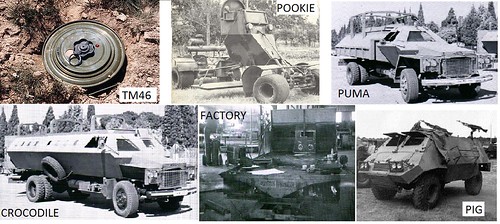I certainly agree I'm pretty sure we could and would do that in an existential situation. As you probably know, it was done, ad hoc, and on a unit by unit thus small scale in both theaters to an extent much as was done on a far larger scale in Viet Nam
(LINK). Though the buried IED problem existed in VN, it was not as pervasive, thus no significant mine protection. Not many urban areas nor even much Bush so not that much close-in and heavyside protection either.
Still, today, I'll have to defend the Troops by mentioning the overwhelming, cumbersome US Army bureaucracy -- most of which is Congressionally induced -- is too unwieldy to do that lacking more cause than was extant in Afghanistan or Iraq.

Easier provided someone not risk averse has the authority to turn on the money spigot and fifty people are not looking over a shoulder to make sure it's spent 'properly.' This after all is the nation where a then sitting President, asked about a tax cut in a booming economy said "We'd give it back to you if we knew you'd spend it right..."

As to the hard chargers. Hmmm. Worked for several of those. Often lot of flash and dash, brave to a fault, aggressive, forward thinkers, some good guys, some arrogant ar$#'oles...
Gotta watch 'em all though, the long and the short and the tall -- good, bad and those in between. If you do not, they tend to get a
lot of people killed -- unnecessarily.







 Reply With Quote
Reply With Quote









Bookmarks